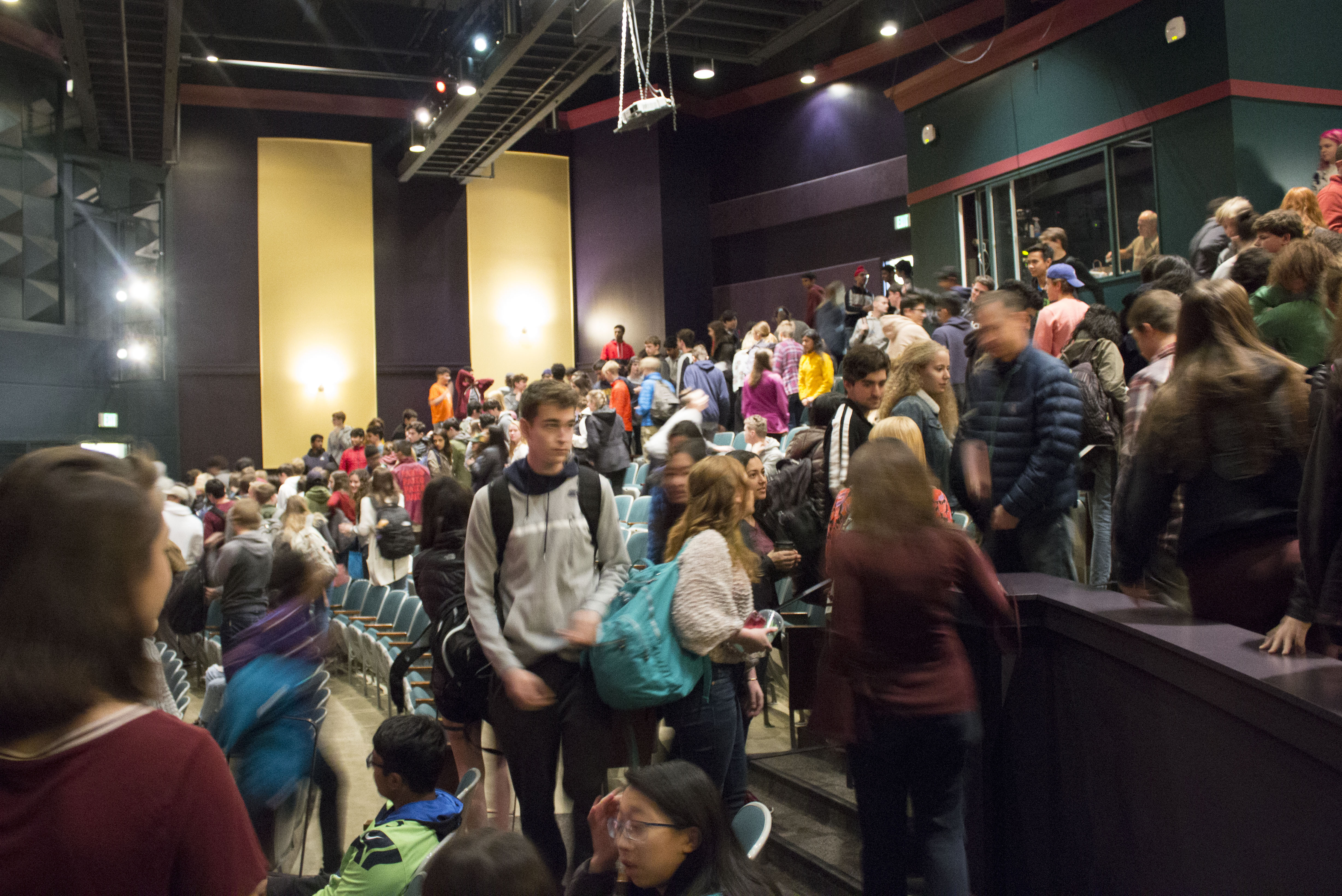- News
Upper School Students Explore Affinity Spaces

Who am I?
This is a difficult question to answer if you are a teenager, and our students have been exploring ideas of identity in Upper School advisory this quarter in our Autobiography of an Owl project.
“It’s no secret that the more we understand ourselves, the easier it is for us to understand how we relate to others. Creating opportunities for our students to explore different aspects of themselves and share their experiences will help us all grow in our understanding of each other,” says Heidi Wilbrandt, one of the leaders of our social emotional learning work at Overlake.
As part of this inquiry, the ASB wanted to be intentional about respecting and honoring the rich and multi-faceted parts of each student’s identity. They structured Parliament this morning to explore the concept of affinity spaces. “We are excited to explore more about our identities as we feel it is important to be intentional about respecting and honoring diversity and inclusion in our community by providing safe spaces for our peers to explore and build healthy identity formation. Affinity spaces are designed for students to develop and strengthen their own lived identity by bringing together people of that same identifier (ex. age, ability, ethnicity, race, gender, religion, sexual orientation, and family status),” Holly H., Class of 2018, shared in an email to Upper School faculty this week.
Friday’s exercise, students were introduced to the idea and concept of affinity spaces and then given an opportunity to experience an affinity activity. Students met with adult facilitators and classmates to discuss their choices. “Any time you can have open and healthy dialogue about how people experience this school and the world is a good thing,” says Nate Edmunds. “I think affinity spaces will provoke a lot of questions, and it’s great for students to be able to share those questions and express concerns.”
We often have a notion that a healthy community is synonymous with sameness, and this may unintentionally prevent us from feeling that we can bring our authentic selves into our community. Inherent in the principle of unity is diversity. While presenting, Overlake’s Director of Diversity Mahtab Mahmoodzadeh stated that “Every single student in this school has a rich series of identities and affinities, and that’s what makes us wonderful, unique, and diverse.”
Students say that they appreciate Overlake’s openness to such an experience and were very receptive to it. “I could tell everybody was taking it seriously and thinking it through,” says Harry G., Class of 2018, about the moment when students were asking themselves which, if any, affinity space resonated with them. “We want to make sure people feel comfortable here. We can’t predict if we’ll have the need for such groups in the next fifty years, but I’m proud to be a part of spaces where students can safely dialogue.”
Overlake will be creating seven new affinity spaces on campus this fall (and continuing with Black Student Union) in response to student requests. Attending an affinity lunch is optional, and that choice is integral to the program. “Through continued education efforts at all levels, we will grow together as a community in our understanding of each other and the work it takes to be diverse and welcoming,” says Dean of Students, Meghan Waddle.
Personal Counselor Pook Panyarachun thinks that success comes with everybody being a part of the process. “There are so many different kinds of identifiers so I’m pleased to see a variety of affinity spaces pop up on campus,” says Pook. “I think it’s important to be honest and explore issues that some groups may be experiencing.”
“One way to commit to anti-bias work and to create a more multi-cultural environment is to permit people to feel safe and strong and reflected within their environment as they begin to do the hard and sometimes uncomfortable work of stepping out of their comfort zones and into the broader world. We have created groups in response to the requests we have heard from the students themselves and by ensuring that we have a leader from the faculty/staff who can reflect the named affinity and facilitate the group” says US Head, Gerald Buhaly.
In future affinity space meetings students will continue to share experiences, affirm and celebrate norms within the identity, engage with the greater Overlake community, and take part in field trips and activities. Student surveying will identify additional groups as interest grows overtime.
